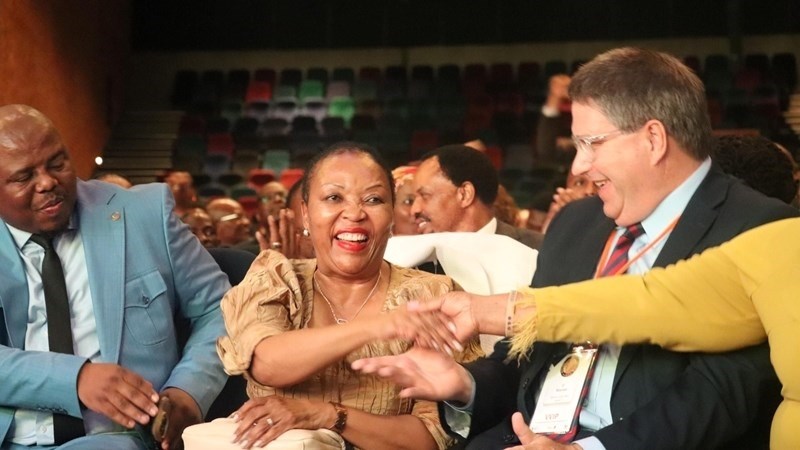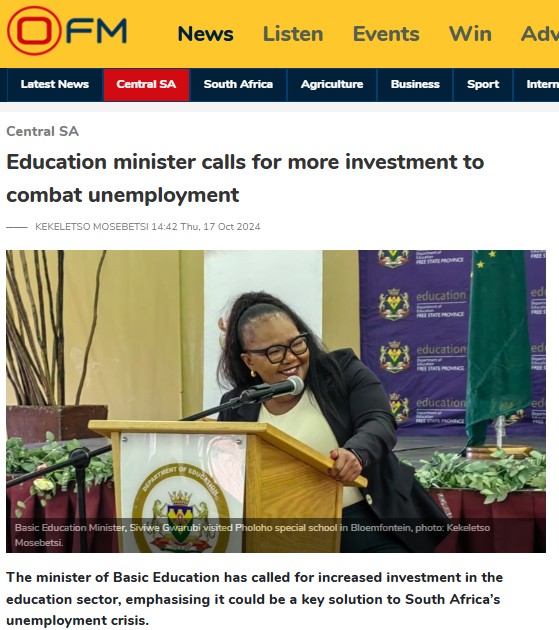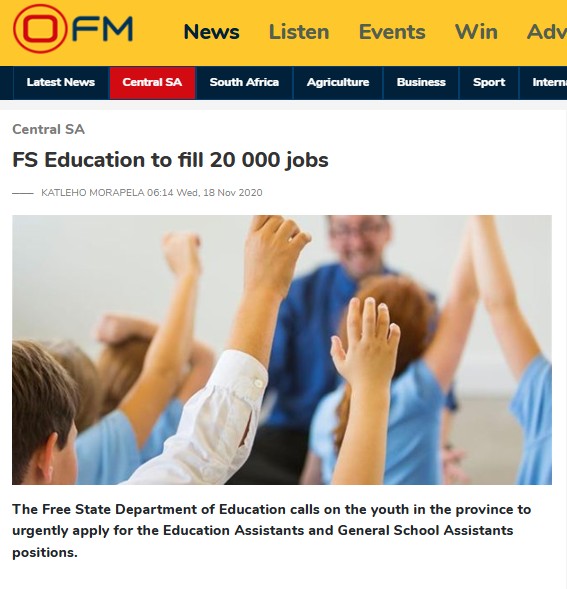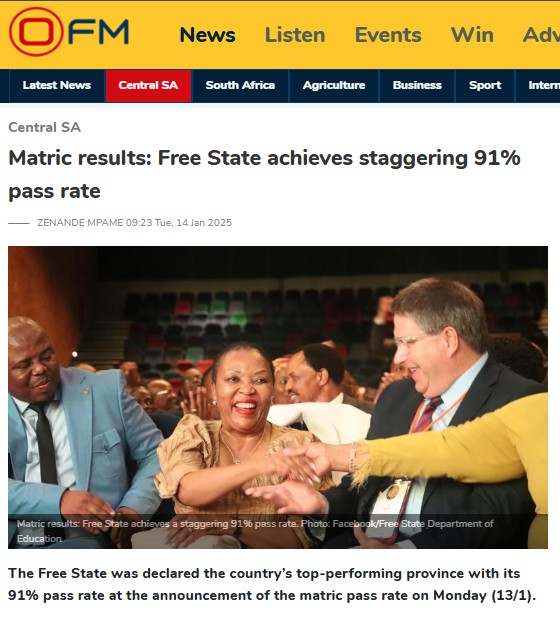Central SA
National backlog: Education crisis deepens as only Free State fills vacancies─── KEKELETSO MOSEBETSI 08:37 Sun, 22 Jun 2025

More than 29,000 education vacancies across South Africa remain unfilled since the start of 2025, with eight out of nine provinces failing to adequately staff their schools.
The Free State stands alone as the only province that has successfully filled all its education posts.
Jaco Deacon, CEO of the Federation of Governing Bodies of South African Schools, expressed deep concern about the impact of these vacancies on learners and the education system.
“Those vacancies were supposed to be filled months ago, not in the middle of the year,” he told eNCA. “They're struggling to get those appointments, number one, and those appointments – eight of the nine provinces are really the culprits. In three provinces, more than three provinces, more than four and a half thousand educators are not in the classrooms or posts are not permanently filled.”
Deacon singled out several provinces with alarming vacancy rates, including the Western Cape, where 26% of principals’ positions and 40% of deputy principals’ positions remain vacant. Acting principals fill some roles temporarily, but the lack of permanent appointments exacerbates instability in school leadership.
The failure to fill these funded posts also affects other critical areas of schooling. Deacon explained that schools receive two payments each year, transferee payments or subsidies, which are expected by 12 May and 15 November yearly. However, six provinces missed these deadlines, and KwaZulu-Natal (KZN) is still waiting for its funds. KZN alone has over 5,000 unfilled vacancies, with children attending school hungry and struggling with transport challenges.
“The reason why the Free State performs better is because they fill vacancies, I mean, you go through the process, you advertise and fill those vacancies. If you drag your feet like other provinces do, they sometimes simply do that to save money. So every time you don’t appoint someone permanently, you save money. But at the end of the day, we are robbing our children; that is why we decided to approach the Human Rights Commission.”
Deacon argued that the failure to fill vacancies is not due to a lack of funding, as these posts are financed by treasury allocations. Instead, the delays and omissions represent a “serious infringement” on learners’ constitutional right to education. He highlighted the far-reaching consequences for children, who are deprived not only of teachers but also of vital support programmes such as nutrition and transport.
Learners suffer when schools cannot pay for essentials such as learning and teaching materials, water, and electricity. Some students were reportedly forced to write their June exams in dark classrooms due to unpaid utility bills.
















